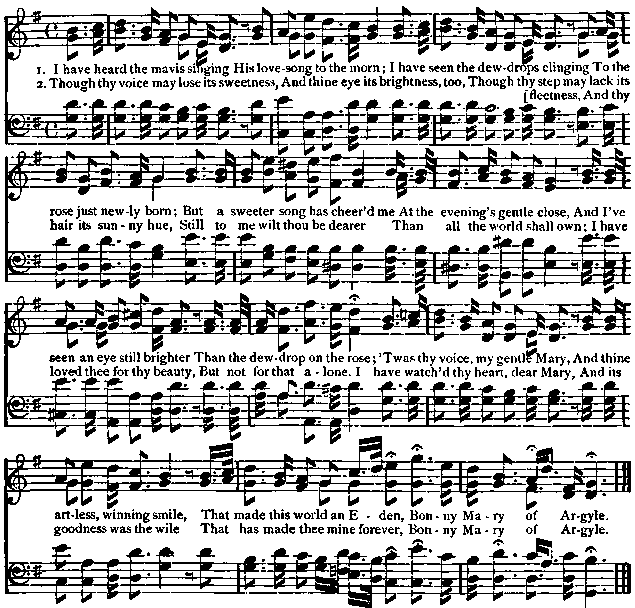Franklin Square Song Collection - online songbook
200 favorite songs and Hymns for Schools, Homes Lyrics & Sheet Music
| Share page | Visit Us On FB |
|
3» |
FRANKLIN-SQUARE SONG COLLECTION. |
|||
|
Early Genius.—Gounod, the musical composer, early manifested his talent. How he secured liberty to follow the bent of his genius, is told in the following incident: It seems that when a boy at college, every effort was made to destroy his musical genius. His professor, M. Poirson, was in despair. His parents intended him for the ecole nor male. On its being announced to him that he was to go up for the necessary examination, the boy burst into tears, and steadily refused to continue his classical studies. His mother appealed to M. Poirson, and implored him to recall her boy to what she considered to be his duty. The stern professor accordingly sent for him, and, in |
a tone more threatening than encouraging, said to him : " So you wish to be a musician?" " Yes, sir," replied the terrified boy. '' But that is not a profession." "What, sir; the profession of Beethoven, of Mozart, of Gluck, is not a profession?" " But, remember that Mozart at your age had composed music worth publishing, whereas you have only scribbled notes on paper. However, here is your last chance; if you really are a musician, you can set words to music." The old man copied out the poem, "Joseph," "A peine au sortir de Pen France." The boy hurried to his school desk, and after studying the subject, wrote an air and accompaniment, which he brought |
|||
|
MARY OF ARGYLE.
Moderato. |
S. Nelson. |
|||
 |
||||
|
|
||||
|
back to his professor, and showed to him, pale with emotion. He felt that on his judgment his future career depended. He sang it to the old man, who listened in amazement, and led him to his drawing room, where he made him play the accompaniment on a piano. Those present were enraptured by the beauty of the composition, and it was at once decided that young Gounod must follow the bent of the undoubted genius with which he was gifted.
That we may sympathize truly, we must in a degree partake of the feelings of others; and this can only be done in proportion to their truthful and delicate delineation. Whatever aids in that aids in promoting liap- |
i piness, and, as the feelings become more worthy of expression, so every means of expressing them should become more eagerly welcomed. There is no doubt that the effects of good music upon the feelings them selves are most beneficial, allaying evil passions, calming undue excitement, soothing sorrow, and inspiring fresh hope and courage in the despondent. If it be found also to have the power of developing the language by which heart speaks to heart, and thus of drawing humanity nearer together in sympathy, an additional reason will arise for its cultivation, and the delight which it now affords will be but a foretaste of the richer and deeper happiness it has in store for us. |
|||